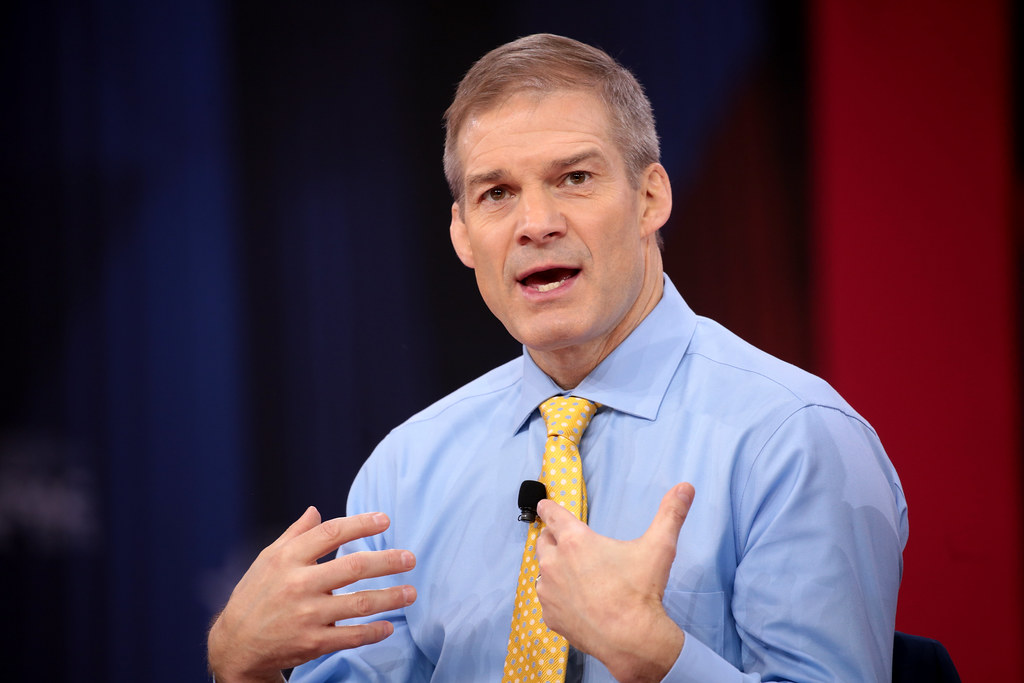Key Takeaways
• Representative Jim Jordan called for Jack Smith to testify before the House Judiciary Committee.
• Jordan accused Smith’s team of a “partisan and politically motivated” probe.
• Critics on social media slammed Jordan’s move as a political witch hunt.
• Grand jury secrecy rules limit what Smith can share in testimony.
• Democrats say Jordan’s demand aims to score political points.
Representative Jim Jordan’s latest letter has stirred a heated debate. He asked former special counsel Jack Smith to appear before the House Judiciary Committee. Jordan claims Smith’s probe of former President Trump was biased. However, legal experts and lawmakers see deeper motives.
What Jim Jordan’s Call for Jack Smith Testimony Means
Jordan’s letter labels the special counsel investigation of Trump’s classified documents as “partisan and politically motivated.” He added that Smith’s team undermined justice. Yet critics note that grand jury secrecy rules block many questions. Consequently, they doubt how much new information can come out.
Background on the Letter
First, Jordan chairs the House Judiciary Committee. On Tuesday, he sent a letter to Jack Smith. In it, he demanded access to all documents and communications from Smith’s service. Jordan accused Smith of playing political favorites. Moreover, he claimed the special counsel’s report is incomplete or misleading.
At the same time, Jordan asked Smith to explain charging decisions. He insisted on knowing how the probe developed. He also expressed concern about transparency. Therefore, he wants Smith to testify in public session.
Criticism and Social Media Backlash
Almost immediately, reactions flooded social media. On one platform, lawyer Amee Vanderpool called Jordan’s demand a “retaliatory political witch hunt.” She pointed out that grand jury secrecy protects many files. Consequently, she compared Jordan’s tactics to those used by Trump.
Then, Representative Jamie Raskin gave a public statement. He praised Jordan ironically for pushing transparency. Yet he suggested the move is more about politics than truth. He noted taxpayers funded the special counsel probe. So, he argued, they deserve to see the report. However, grand jury rules still apply.
Journalist Marcy Wheeler also weighed in. She reminded followers that the FBI director previously released a grand jury transcript. She implied that Jordan should focus on that matter first. In addition, she questioned Jordan’s claims about secrecy.
Meanwhile, podcaster Allison Gil highlighted factual errors. She noted Merrick Garland, not Jack Smith, ordered the Mar-a-Lago search. Consequently, she labeled parts of Jordan’s letter false. This mix of legal debate and factual correction fueled the controversy.
Grand Jury Secrecy and Its Limits
However, grand jury secrecy plays a central role here. Under law, many documents stay sealed. Thus, even if Jack Smith wanted to share details, rules might forbid it. Therefore, some experts say the request is more symbolic than substantive.
Moreover, grand jury rules aim to protect witnesses and jurors. They prevent leaks that could harm ongoing probes. Consequently, sharing those records in public testimony can violate law. Even so, Jordan insists on full disclosure.
Also, special counsel reports can include both factual findings and legal analysis. Some sections may remain classified. Therefore, Smith may face legal barriers in answering all questions. This tension between oversight and secrecy fuels our political divide.
Political Reactions
In addition to legal critics, political voices have weighed in. Leadership in both parties sees different angles. Republicans largely support Jordan’s oversight efforts. They claim a check on special counsels is vital. They argue that no one should act without accountability.
On the other hand, Democrats view this as a partisan attack. They argue Jordan is deflecting from other committee priorities. For example, they point to unaddressed issues like technology regulation. Consequently, they say the letter serves political theater.
Furthermore, some moderate voices warn of eroding norms. They believe endless probes into special counsels can chill future investigations. Meanwhile, public trust in justice may decline. Therefore, they call for a balanced approach.
What’s Next for Jack Smith
Meanwhile, Jack Smith must decide how to respond. First, he will likely consult Justice Department guidelines. He needs to weigh legal duties against congressional demands. Second, his team may ask for a classified session. That could protect sensitive information.
Moreover, Smith could submit written answers instead of public testimony. This approach would fit within grand jury secrecy rules. Yet, Jordan insists on a live hearing. So, a standoff appears likely.
Ultimately, the House Judiciary Committee will schedule a vote on a subpoena if Smith refuses. That move could lead to legal battles in federal court. Consequently, the fight may stretch over months.
Why This Matters to You
In modern politics, oversight battles often hit national headlines. However, they also affect public trust. When lawmakers accuse investigators of bias, citizens question fairness. Moreover, when secrecy rules block facts, people grow skeptical.
Therefore, this clash between Jim Jordan and Jack Smith shows deeper tensions. It speaks to how powers check each other. It also highlights the fine line between oversight and politics.
Transition to Clarity
To sum up, the demand for Jack Smith testimony mixes law and politics. On one side, Ireland calls for transparency. On the other, legal rules limit what’s shareable. Meanwhile, critics see a political agenda. Ultimately, the resolution will shape future congressional oversight.
Frequently Asked Questions
Why did Jim Jordan ask Jack Smith to testify?
Jim Jordan believes that Jack Smith’s investigation of former President Trump was biased. He sent a letter demanding documents and public testimony to address his concerns.
Can Jack Smith share grand jury information?
No. Grand jury secrecy rules block many disclosures. Even a special counsel cannot publicly reveal certain records without court approval.
What might happen if Smith refuses to testify?
If Jack Smith declines, the committee may vote to issue a subpoena. That could spark a legal fight, delaying any hearing for months.
How does this affect public trust?
When political leaders clash over special investigations, public confidence can suffer. People may doubt whether justice is applied fairly or used for politics.
